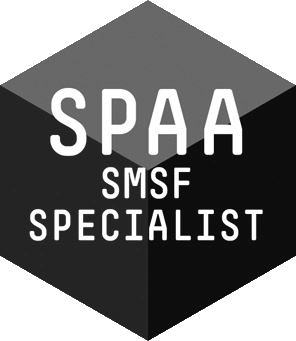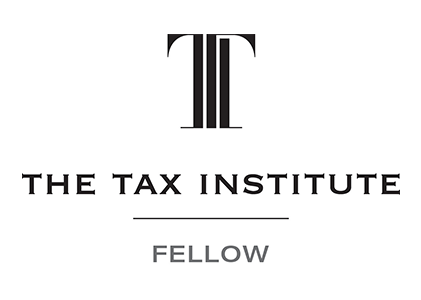Has the end of another financial year prompted you to stop and take a moment to reassess your career? Are you keen to do something different, make a bigger impact, this next financial year? Maybe you're an accountant considering a leap into self-employment as a registered tax agent? If so, here’s what you need to know to turn your skills into a thriving tax business.
Why Become a Tax Agent?
For many accountants, the move to become a registered tax agent represents a natural evolution in their career. It provides the opportunity to expand your service offerings, gain more autonomy, and take control of your income and professional direction. Whether you're motivated by flexibility, the desire to build your own client base, or long-term financial goals, becoming a tax agent and running your own business is a rewarding step.
Step 1: Understand the Role and Legal Requirements
In Australia, tax agents must be registered with the Tax Practitioners Board (TPB). To qualify, you typically need:
- Tertiary qualifications in accounting or a related field
- Relevant work experience, often a minimum of 1,000–1,400 hours over a set period
- Completion of a Board-approved course in Australian taxation law and commercial law
- Professional indemnity insurance
- Passing a fit and proper person test
From 1 July 2025, all registered tax agents must also comply with eight new obligations under the TPB Code of Professional Conduct. These include maintaining competence, managing conflicts of interest, upholding ethical standards, keeping proper records, and ensuring clear client communications.
Make sure to consult the TPB website for exact requirements, as there are multiple qualification and experience pathways.
Step 2: Gain Relevant Experience
Before applying, ensure you’ve accrued sufficient practical experience in tax-related work under the supervision of a registered tax agent. This could include:
· Preparing individual and business tax returns
· Advising on GST, BAS, and fringe benefits
· Providing general tax planning advice
Keep detailed records of your hours and the nature of the work performed.
Step 3: Register as a Tax Agent
Once you meet the criteria, you can apply to the TPB. The application process involves submitting proof of qualifications, experience, and insurance, along with a fee.
Upon approval, you’ll be authorised to:
- Lodge tax returns on behalf of clients
- Provide tax advice
- Represent clients in dealings with tax authorities
Step 4: Launching Your Business
Now that you’re registered as a tax agent, it’s time to think about establishing your business. But starting a tax practice requires more than technical knowledge—it involves commercial acumen and know-how to create a sustainable and thriving business from the ground up.
Here’s one way to approach it:
1. Business Structure
Choose a legal structure (sole trader, partnership, or company) that suits your goals, liability preferences, and tax implications.
2. Licensing and Compliance
Register your business name, get an ABN (if applicable), and ensure ongoing compliance with TPB requirements.
From 1 July 2025, you must also implement a documented Quality Management System (QMS). This ensures your practice has proper processes for quality assurance, record keeping, and risk management.
3. Systems and SoftwareInvest in reliable tax software (e.g., Xero Tax, MYOB, or Intuit ProConnect), document management systems, and cybersecurity measures to protect client data.
4. Marketing and Client Acquisition
o Create a professional website and online presenceo Use social proof—ask early clients for reviews
o Network with other professionals (lawyers, financial planners, mortgage brokers)
o Offer value-added services like tax planning, budgeting, or business advisory
5. Pricing Your Services
Start with market research. Offer transparent, value-based pricing or packages (e.g., individual returns, business tax & BAS packages, etc.).
The second way to build a successful tax agent business (and often a faster way) is to buy into a proven system with technology and marketing support, ongoing mentorship, and an established brand, such as a Tax Store franchise. Read more about our franchisees here.
Step 5: Stay Up to Date and Grow
The tax landscape changes frequently. Stay current with legislation, industry updates, and technology. Join professional associations, attend workshops, and build a support network of mentors or peers.
Compliance Reminder (2025): The TPB now has expanded enforcement powers. Non-compliance with Code obligations, QMS requirements, or registration conditions can result in fines, infringement notices, or even bans.
As your practice grows, consider:
- Hiring team members or contractors
- Diversifying into bookkeeping or financial planning
- Expanding your niche (e.g., small business, medical professionals, crypto tax)
Looking ahead, be aware that further reforms are expected from 1 July 2027, which may affect governance requirements and pathways for registration.
Final Thoughts
Transitioning from accountant to tax agent and business owner is a significant but achievable move. With the right preparation, a commitment to compliance and client service, and a clear business vision, you can build a successful tax practice on your terms.
Whether you're dreaming of more independence, greater impact, or better work-life balance, now is a great time to make your move.
Interested in taking the first step? Download our franchisee info pack today!
Our Management Credentials




